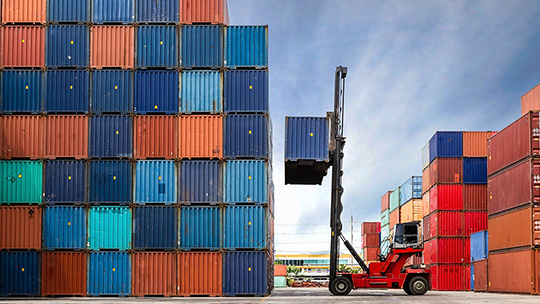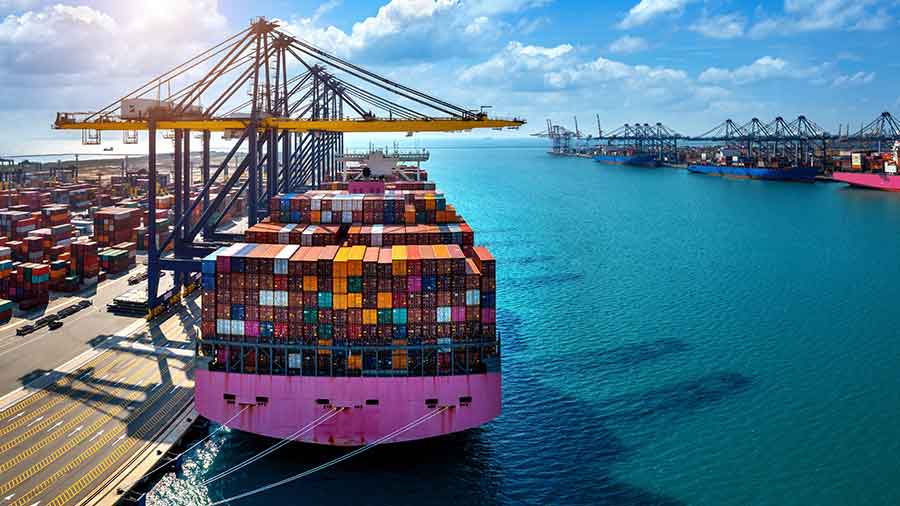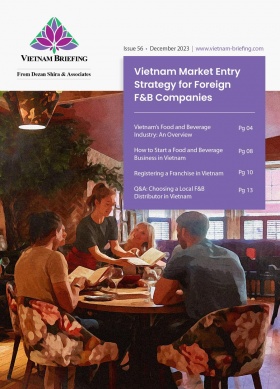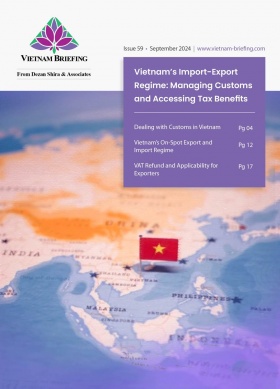Vietnam’s On-Spot Export and Import Regime
The management of on-spot export and import activities in Vietnam has exposed certain shortcomings, prompting the government to plan reforms to align with international standards and ensure fairness across different types of businesses.
On-spot or on-the-spot (OTS) export and import procedures help businesses streamline manufacturing and reduce cargo delivery times, ultimately lowering costs. In this model, export and import processes occur within the same country.
Essentially, goods are produced for export to a foreign trader but are then delivered back to the country where they were manufactured. However, the on-the-spot export and import process can be complex, particularly when it comes to customs clearance.
This article will guide businesses through Vietnam’s current regulations on this matter, as well as anticipated future amendments.
Carrying out on-spot export and import successfully
Carrying out on-spot export and import successfully involves several best practices.
First, businesses must identify the goods’ information for the procedure, ensuring that the goods intended for on-spot export and import meet local regulations regarding type, quantity, value, and other related requirements.
Next, firms should prepare the relevant documents, such as sales contracts, invoices, and transportation documents, and register the export and import code with the customs authority to confirm their eligibility to operate in this field. Depending on the goods and destination country, businesses may also need to register with the customs authority and other relevant bodies, such as quarantine or tax authorities.
Once all preparations are in place, the transportation procedure can begin, moving the goods from the export to the import point. Upon arrival at the import point, businesses must ensure that the customs clearance process is properly completed by submitting accurate customs dossiers and meeting inspection requirements.
Lastly, all applicable customs taxes and fees related to the exports and imports must be paid.
Eligible products for on-spot export and import in Vietnam
Per Point 1, Article 35, Decree 08/2015/ND-CP (hereinafter “Decree 08”), on-spot export and import shall include:
- Those produced in Vietnam under contract manufacturing arrangements and sold to Vietnamese organizations or individuals by overseas ones;
- Those traded under the sale and purchase contract between domestic enterprises and exporting and processing enterprises or enterprises located in free trade zones; and
- Those traded under the sale or purchase contract between Vietnamese enterprises and overseas organizations or individuals with no representative in Vietnam and delivered or received under the designation arrangement between foreign merchants and other enterprises in Vietnam.
According to Clause 5, Article 3 of the Law on Foreign Trade Management, a foreign trader without a presence in Vietnam “means a foreign trader that conducts no investment or business activities in Vietnam in the forms prescribed in the investment law, commercial law or law on enterprises, and has no representative office or branch in Vietnam as prescribed in the commercial law or law on enterprises.”
Customs dossiers for on-spot export goods
Under Circular 38/2015/TT-BTC (hereinafter “Circular 38”) and Circular 39/2018/TT-BTC (hereinafter “Circular 39”), customs dossiers for on-spot export and import goods include:
- Export goods declaration;
- Commercial invoice or equivalent document in case the buyer must pay the seller;
- Export license;
- Notice of exemption from inspection, notice of specialized inspection results, or other documents as prescribed by law on specialized management and inspection (hereinafter, “Specialized Inspection Certificate”);
- Documents proving that the organization or individual is qualified to export goods as prescribed by law on investment; and
- Entrustment contract.
These circulars also stipulate that the on-spot importer must complete customs procedures within 15 working days from the date of customs clearance of exported goods.
Responsibilities of related parties in customs procedures
Clause 58, Article 1 of Circular 39 amends Clause 5, Article 86 of Circular 38 on customs procedures. Accordingly, the responsibilities of exporters, importers, and competent authorities are regulated.
The local exporter shall:
- Complete the declaration of exports and combined transport, specifying the destination code of the Sub-department of Customs where import procedures are followed and the enterprise identification number;
- Follow procedures for exporting goods as prescribed;
- Inform the local importer of the completion of export procedures and deliver the goods to the importer after the importer completes import procedures; and
- Receive information about the on-spot import declaration for which the local importer has completed customs procedures for further processing.
The importer shall:
- Complete the import declaration by the deadline, specifying the number of the declaration;
- Follow procedures for importing goods as prescribed;
- After import procedures are completed, request the local exporter to carry on the procedures; and
- Only sell or use imports for manufacturing after customs clearance is granted.
The customs authority where import procedures are followed shall:
- Complete the export procedures prescribed in Chapter II of Circular 39; and
- Monitor declarations of in-country exports that have completed customs procedures but have not completed import procedures and inform the Subdepartment of Customs where import procedures will be carried out, which will supervise the local importer following the procedures.
The customs authority where import procedures are followed shall:
- Carry out inspection according to the classification result given by the e-customs system. If physical inspection of goods is required and goods have undergone physical inspection at the Sub-department of Customs of Export, the Subdepartment of Customs of Import shall not carry out a physical inspection;
- Compile monthly lists of indirect exports that have been granted customs clearance (Form No. 01/TB-XNKTC/GSQL in Appendix V) and send them to the supervisory tax authority of the local importer; and
- Cooperate with the Sub-department of Customs, where export procedures are carried out to supervise the local importer in completing customs procedures.
Shortcomings in management of OTS export and import in Vietnam
Currently, Vietnam’s legislation is inconsistent in its treatment of on-sport export and import activities across different laws and guiding documents. Article 35 of Decree 08 has promulgated a broad definition of on-sport export and import activities. Meanwhile, other related legislation, such as Law on Trade 2005 and Law on Foreign Trade Management 2018, only deal with more minor activities, including processed goods, hired/ borrowed machinery and equipment, disposal of excess raw materials/supplies, waste, and rejects.
Despite rewarding traders with less time and costs incurred, the on-spot export and import regime also imposes potential risks in areas of transfer pricing, foreign currency outflow, and unfair competition in the circulation of goods in Vietnam between foreign-invested trading enterprises and purely domestic trading enterprises.
Therefore, the Vietnamese government believes that revamping the regulation of the on-spot export and import regime is necessary to establish a fair environment for various types of businesses.
Strategies and potential amendments to related regulations
Tax Strategy Towards 2030
According to Decision No. 508/QD-TTg, dated April 23, 2022, on the Approval of the tax reform strategy until 2030, the state will “study any amendments to regulations on-the-spot exports or imports and regulations related to non-tariff zones, ensuring consistency with relevant law and prevention of trade fraud and tax evasion.”
Goods Import Export Strategy towards 2030
Under Decision No. 493/QD-TTg, dated April 19, 2022, on Approving the strategy for merchandise exports and imports by 2030, the government stipulates a target towards sustainable development with a balanced and harmonious product and market structure by adjusting the proportion of goods in specific categories.
Notably, Vietnam aims to increase its proportion of exports to the US and EU markets compared to Asian markets.
Proposed amendments to Decree 08
The Ministry of Finance (MoF) is studying amending the regulations relating to on-spot export and import, provided under Clause 1c, Article 35, Decree 08.
According to Official Dispatch 9133/TCHQ-GSQL (hereinafter, “OD 9133”), the MoF aims to abolish the OTS export-import scheme and route them as domestic transactions, as explained below.
- Annul the entire Article 35 (mainly Point 1c) of Decree 08 and amend other regulations related to on-spot export and import in different laws:
1) Annulling the on-spot import-export provisions for processing goods under contracts with foreign traders in the Commercial Law and the Foreign Trade Administration Law.
2) Annulling the provision regarding the tax liability for on-spot import-export goods in the Export-Import Tax Law.
3) Annulling the regulations on the Value-Added Tax (VAT) rate, VAT deduction, or VAT refund applicable to on-spot export goods in the VAT Law.
4) Adding provisions in the Corporate Income Tax Law for foreign traders without a presence in Vietnam but generating revenue and not undergoing customs procedures. In such cases, tax collection shall be carried out through agents in Vietnam.
5) The Personal Income Tax Law should include provisions for cases in which foreign traders, without a presence in Vietnam, generate revenue within Vietnam. The amended provisions will require these foreign traders to pay Personal Income Tax. - Elaborate on the cases in Points 1a and 1b, Article 35, on the corresponding provisions specified in Circular No. 38/2015/TT-BTC (amended and supplemented by Circular No. 39/2018/TTBTC).
- Propose alternatives to replace customs procedures for the on-spot export and import of goods and recommend assigning the management responsibility and tax collection to the domestic tax authorities.
Implications of the upcoming amendments
If the OTS export-import regime is abolished and these activities are eventually routed as domestic transactions, Vietnamese sellers will no longer be entitled to the 0-percent VAT or VAT refunds for conducting the OTS export and import arrangement under Clause 1c, Article 35, Decree 08.
According to OD 9133, if goods sold by a Vietnamese seller are produced from imported raw materials exempt from import duty for export production, certain business arrangements may qualify these transactions as export-import relationships, subject to the corresponding tax and customs treatment.
These arrangements include:
- Vietnamese sellers exporting goods to bonded warehouses or special customs zones; and
- Vietnamese buyers converting into export processing enterprises.
The international law firm Baker McKenzie highlights MoF’s proposal to define the international sale of goods in the context of Vietnam’s international commitments. There is a concern that the current OTS export-import treatment, in which trading rights are subject to registration requirements under Decree No. 90/2007/ND-CP would be questionable regarding consistency with the WTO trading right commitment.
Conclusion
The on-spot export and import regime in Vietnam will experience significant changes as the government is determined to patch the loopholes in its legislation. In this context, firms are advised to closely monitor potential amendments while complying with the current regulations to maximize their business benefits. Companies should quickly seek help from experts and professional advisors to address difficulties with compliance.
About Us
Vietnam Briefing is published by Asia Briefing, a subsidiary of Dezan Shira & Associates. We produce material for foreign investors throughout Asia, including ASEAN, China, and India. For editorial matters, contact us here and for a complimentary subscription to our products, please click here. For assistance with investments into Vietnam, please contact us at vietnam@dezshira.com or visit us at www.dezshira.com.
Dezan Shira & Associates assists foreign investors throughout Asia from offices across the world, including in Hanoi, Ho Chi Minh City, and Da Nang. We also maintain offices or have alliance partners assisting foreign investors in China, Hong Kong SAR, Dubai (UAE), Indonesia, Singapore, Philippines, Malaysia, Thailand, Bangladesh, Italy, Germany, the United States, and Australia.
- Previous Article Vietnam Draft Decree on Rooftop Solar Power: New Opportunities on the Horizon for Investors
- Next Article Vietnam’s Digital Infrastructure Strategy: Opportunities for Foreign Investors
































